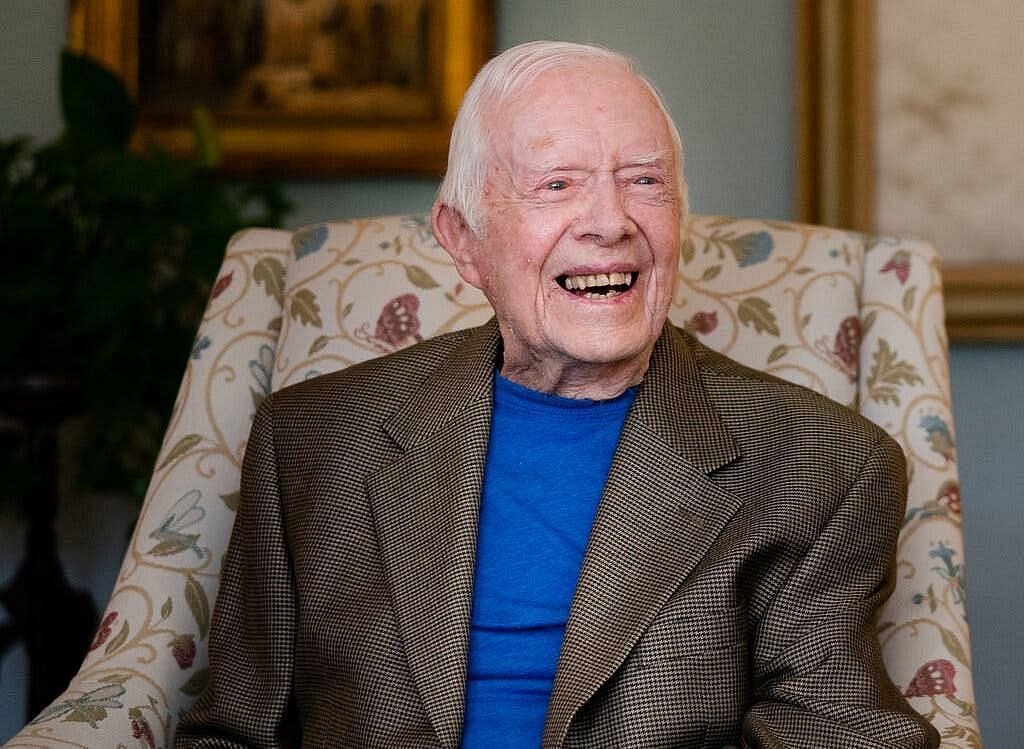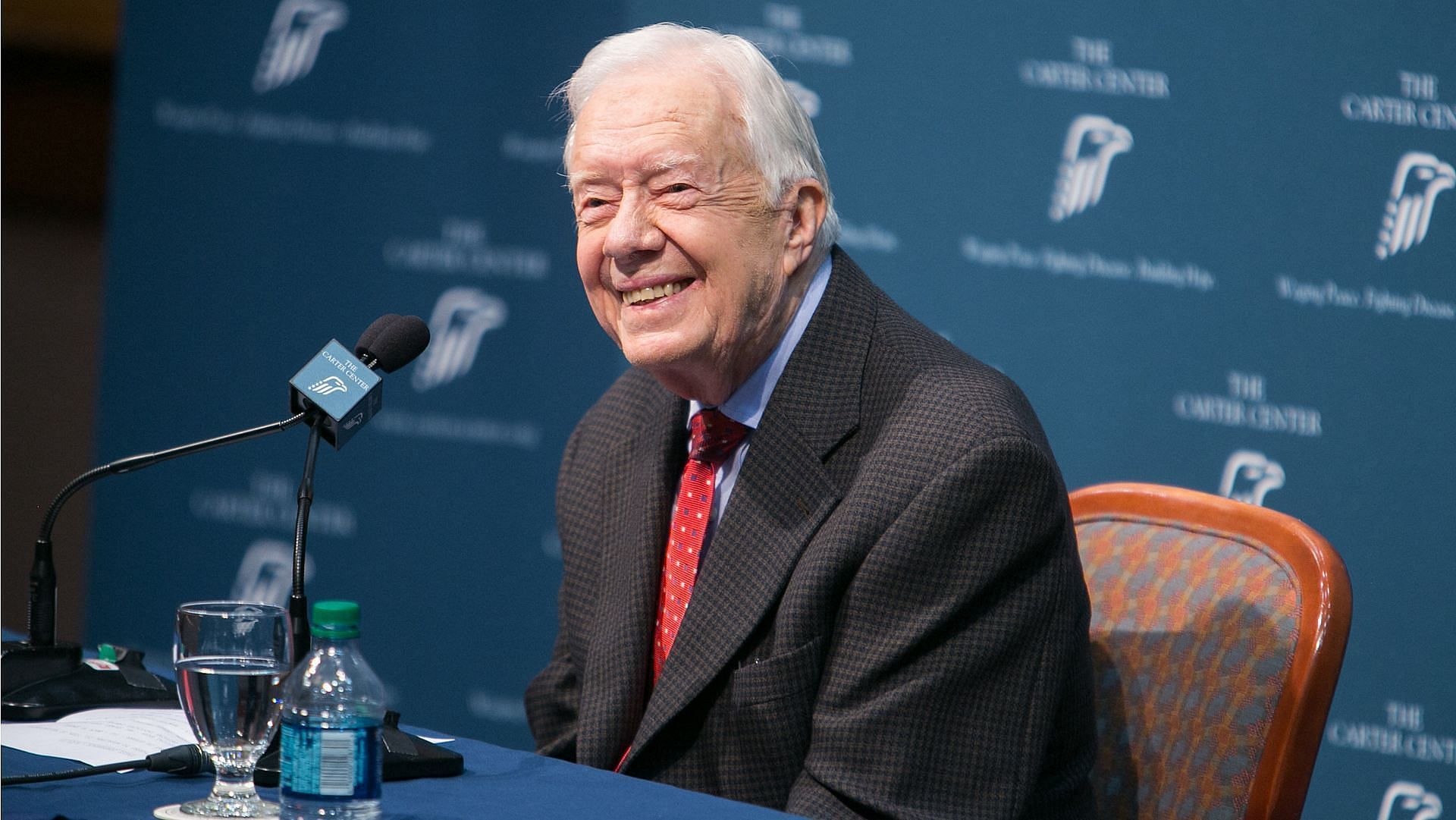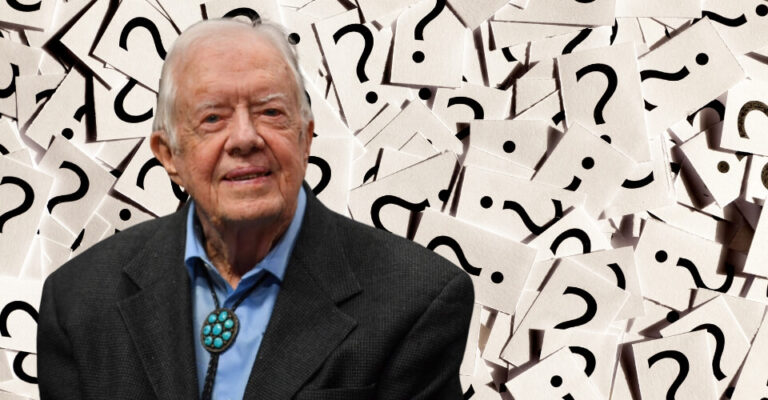Did Jimmy Carter Pass the Panama Canal Treaties?

Did jimmy carter pass – The Panama Canal Treaties were a pair of treaties that were negotiated between the United States and Panama in 1977. The treaties transferred control of the Panama Canal from the United States to Panama on December 31, 1999. Jimmy Carter played a key role in the negotiation and ratification of the treaties.
Jimmy Carter’s passing has left a void in the hearts of many, but his legacy lives on. As the world mourns the loss of a great leader, sports fans eagerly anticipate the thrilling conclusion of the Stanley Cup Finals stanley cup game 7.
The fate of the coveted trophy hangs in the balance, promising an unforgettable spectacle that will undoubtedly captivate audiences worldwide. Amidst the outpouring of grief and the excitement of the playoffs, Jimmy Carter’s memory serves as a reminder of the enduring power of human spirit.
Background, Did jimmy carter pass
The Panama Canal was built by the United States between 1904 and 1914. The United States had been granted control of the canal zone in perpetuity by the Hay-Bunau-Varilla Treaty of 1903. However, Panamanians had long resented the U.S. presence in the canal zone, and there were several riots and protests in the 1960s and 1970s demanding that the canal be returned to Panama.
Jimmy Carter, the 39th President of the United States, has lived a long and eventful life. He is the oldest living former president and has been involved in many charitable and humanitarian efforts since leaving office. Recently, there has been speculation about Carter’s health, and some have wondered if he has passed away.
According to recent reports , Carter is still alive and in relatively good health. He continues to be active in public life and is a respected elder statesman.
Carter’s Role
Jimmy Carter was elected president in 1976. He campaigned on a promise to improve relations with Latin America, and he made the negotiation of a new Panama Canal treaty a priority.
The world was shocked when news broke that former US President Jimmy Carter had passed away. However, it turned out to be a false alarm, and Carter is still alive and well. In fact, he recently met with renowned artist Tamayo Perry to discuss the importance of art in society.
Perry’s work has been praised for its ability to capture the human experience, and Carter was impressed by her talent. The two discussed the power of art to bring people together and inspire change. Carter’s meeting with Perry is a reminder that he is still an active and engaged citizen, despite his advanced age.
Carter appointed Ellsworth Bunker as the chief U.S. negotiator for the treaty talks. Bunker was a former ambassador to South Vietnam and had a reputation for being a tough negotiator. However, Carter also instructed Bunker to be flexible and to make concessions to the Panamanians.
The treaty talks were long and difficult, but Carter remained committed to reaching an agreement. In 1977, the two sides finally reached an agreement on a new treaty. The treaty was signed by Carter and Panamanian President Omar Torrijos on September 7, 1977.
Jimmy Carter’s presidency saw a focus on human rights and environmental protection. One of his notable achievements was the establishment of the Rapidan Dam , which played a crucial role in flood control and water conservation in Virginia. Carter’s commitment to environmental stewardship remains a legacy of his presidency, highlighting the importance of protecting natural resources for future generations.
Ratification
The Panama Canal Treaty was ratified by the U.S. Senate in 1978. However, the treaty faced strong opposition from some members of Congress, who argued that it was giving away too much to Panama.
Carter lobbied hard for the treaty, and he eventually convinced the Senate to ratify it by a vote of 68 to 32. The treaty was also ratified by the Panamanian legislature.
Impact
The Panama Canal Treaties had a significant impact on US-Panama relations. The treaties ended the U.S. presence in the canal zone and transferred control of the canal to Panama. The treaties also helped to improve relations between the two countries.
Did Jimmy Carter Pass the Camp David Accords?

The Camp David Accords were a series of agreements signed between Israel and Egypt in September 1978. The accords were the culmination of 13 days of negotiations at Camp David, the presidential retreat in Maryland. President Jimmy Carter played a key role in mediating the negotiations.
Key Provisions of the Accords
The key provisions of the Camp David Accords included:
- An end to the state of war between Israel and Egypt.
- The withdrawal of Israeli forces from the Sinai Peninsula, which had been occupied by Israel since the Six-Day War in 1967.
- The establishment of a Palestinian self-governing authority in the West Bank and Gaza Strip.
- The recognition of Israel’s right to exist and the right of the Palestinians to self-determination.
Impact of the Accords
The Camp David Accords had a significant impact on the Middle East peace process. They were the first peace treaty between Israel and an Arab state and helped to pave the way for the Oslo Accords, which were signed in 1993.
Jimmy Carter’s Role
Jimmy Carter played a key role in mediating the negotiations between Israel and Egypt. He used his diplomatic skills and personal relationships with both leaders to help them overcome obstacles and reach an agreement.
Did Jimmy Carter Pass the Human Rights Initiatives?

Jimmy Carter’s presidency witnessed a significant emphasis on human rights both domestically and internationally. He believed that promoting human rights was a moral imperative and essential for fostering global peace and stability.
Carter’s domestic human rights initiatives focused on addressing issues of civil rights, equality, and social justice. He appointed the first African American to the Supreme Court, Thurgood Marshall, and supported legislation to strengthen voting rights and protect the rights of women and minorities. Carter also pardoned Vietnam War draft evaders and established a commission to investigate past human rights abuses by the CIA.
On the international front, Carter made human rights a cornerstone of his foreign policy. He condemned human rights violations in countries around the world, including the Soviet Union, China, and Chile. Carter also supported the creation of the United Nations Human Rights Commission and worked to negotiate international agreements on human rights.
The effectiveness of Carter’s human rights policies is a matter of debate. Some argue that his emphasis on human rights helped to raise awareness of the issue and contributed to long-term improvements in human rights practices around the world. Others contend that his policies were too idealistic and did not always achieve their intended goals. Nonetheless, Carter’s commitment to human rights remains a significant legacy of his presidency.
Impact of Carter’s Human Rights Initiatives
Carter’s human rights initiatives had a significant impact both domestically and internationally. Domestically, his policies helped to advance civil rights and equality and contributed to a greater awareness of human rights issues. Internationally, Carter’s emphasis on human rights helped to raise the profile of the issue and contributed to the development of international human rights norms and institutions.
Jimmy Carter’s presidency witnessed significant changes in the social welfare landscape of the United States. Among them was the establishment of the Social Security Administration , a federal agency responsible for administering social security benefits. This move aimed to provide financial security for retirees and disabled individuals, ensuring their well-being and dignity in their later years.
The impact of Carter’s policies on the social security administration continues to shape the lives of millions of Americans today.